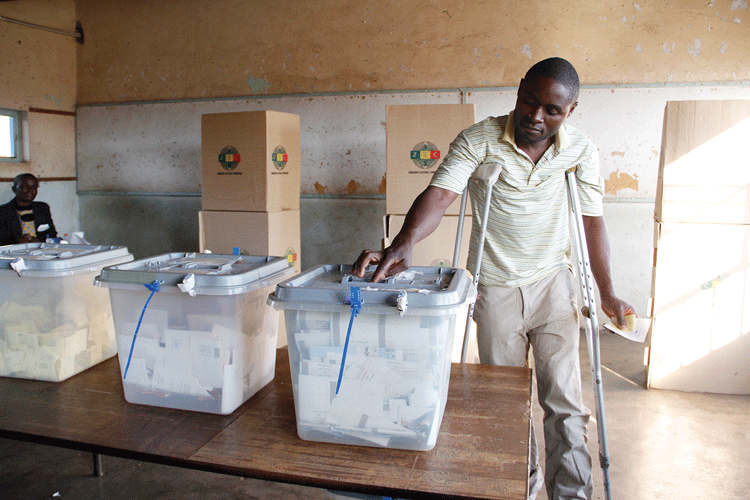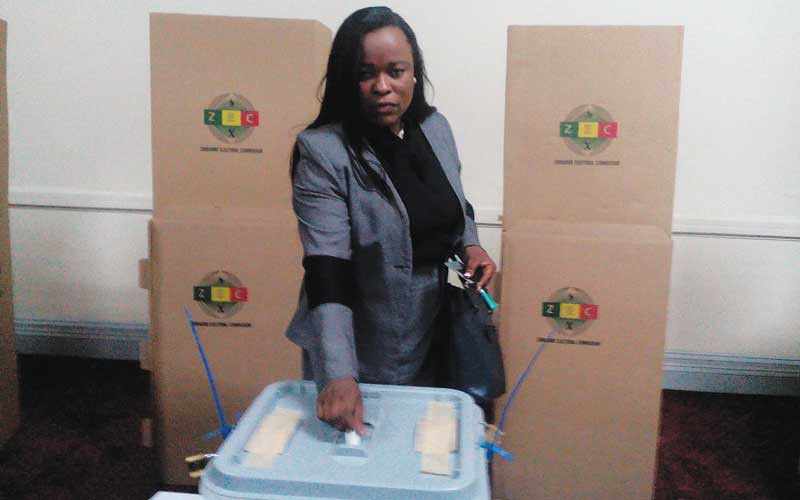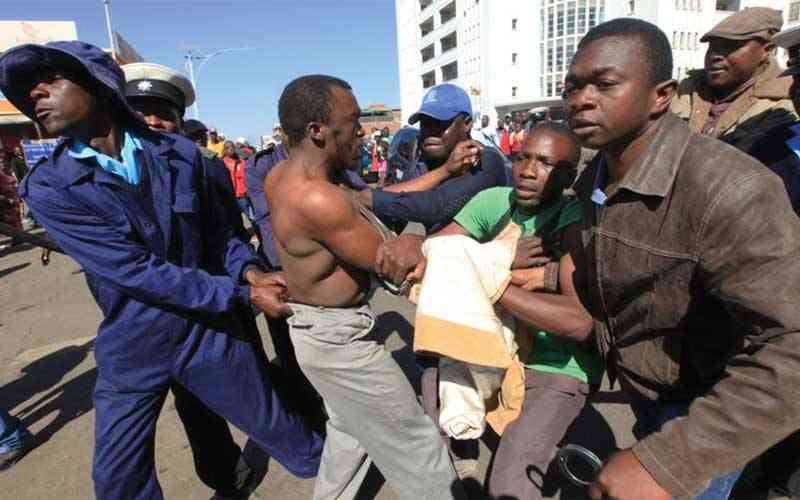
THE right to participate in politics and public life is well-established in human rights law and should be upheld and respected for persons with disabilities.
The Disability Reform Coalition (DRC) appreciates the great work being done by the Zimbabwe Electoral Commission (Zec) through stakeholder engagements in order to improve electoral processes in the country.
We also acknowledge the Elections Roadmap published by Zec understanding that dates for by-elections will be announced by President Emmerson Mnangagwa.
As the nation prepares for the by-elections in 2022, there is urgent need to remove barriers that impede the full participation of persons with disabilities in electoral processes.
The upcoming by-elections serve as a barometer of change in elections as they provide a preview of the state of readiness of the country to fully accommodate and include persons with disabilities in the electoral and political processes.
Creating an enabling environment in the 2022 by-elections will ensure that persons with disabilities have a say in the democratic governance of the country.
The DRC’s key demands to the Zimbabwe Electoral Commission include:
- Disaggregating statistics on disability in voter registration
- Provision of mobile registration booths and deliberately targeting persons with disabilities
- Access to voter registration, delimitation and provision of voter education information in accessible formats such as Braille and Sign Language for persons with disabilities
- Provision of tactile ballots to guarantee the right to secret ballot for voters with visual impairments
- Capacitating public service staff to be able to assist persons with disabilities at polling stations and inclusion of persons with disabilities as poling officers
- Deliberate and direct efforts to provide voter education and information to persons with disabilities in rural areas to foster the participation of persons with disabilities in electoral processes
- Ensuring that all polling stations have disability friendly booths , clearly signed queues and disability friendly infrastructure. –DRC
CSOs raise alarm over PVO Amendment Bill
- Chamisa under fire over US$120K donation
- Mavhunga puts DeMbare into Chibuku quarterfinals
- Pension funds bet on Cabora Bassa oilfields
- Councils defy govt fire tender directive
Keep Reading
CIVIC society organisations (CSOs) have expressed concern over two proposed legislation, the Private Voluntary Organisations (PVO) Amendment Bill and approved principles aimed at amending the Criminal Law (Codification and Reform) Act to criminalise citizens’ unauthorised negotiations with foreign governments.
Government recently gazetted the PVO Amendment Bill, to bring the existing PVO Act into line with Recommendation Eight, made by the Financial Action Task Force (FATF) to prevent money laundering and terrorist financiers from abusing PVOs for illicit activities.
However, CSOs say the PVO Amendment Bill poses a “significant” risk to civic space in Zimbabwe as it gives too much power to the executive to control and interfere with the work of non-governmental organisations (NGOs) while increasing surveillance and monitoring.
According to the Justice, Legal and Parliamentary Affairs ministry, Cabinet on November 16 also approved principles of the proposed criminal law to amend the Act and drafting instructions have since been forwarded to the Attorney-General’s Office.
These approved principles seek to regulate Zimbabwean citizens’ engagement with foreign governments to reportedly incorporate Section 12 of the Constitution which deals with Zimbabwe’s foreign policy.
Section 12 stipulates, among others, that Zimbabwe’s foreign policy must be based on the promotion and protection of the country’s national interest and respect for international law.
The proposed law will criminalise, among others, unauthorised private negotiations engaged in by citizens with foreign governments which relates to the country’s foreign relations and policy with other sovereign nations.
In a statement, the Media Institute of Southern Africa (Misa) Zimbabwe said these two proposed legislative steps had an ominously chilling effect given their far-reaching impact on the ability of civil society to work freely in Zimbabwe.
Misa noted that approvals to amend the Criminal Law follow the recent gazetting of the PVO Amendment Bill that “seemingly seeks to target NGOs that are performing their watchdog role over the three arms of the state which is at the core of citizens’ democratic participation in governance issues and economic development.”
“While the ministry (of justice) said the amendments would have no effect on the right to freedom of expression, the proposed law has the potential of instilling fear among citizens thereby limiting their right to free expression,” said the watchdog.
“In essence, the laws seek to curtail and criminalise civil society’s work at an unprecedented scale and level that has not been witnessed before in the history of Zimbabwe.” –CITE











